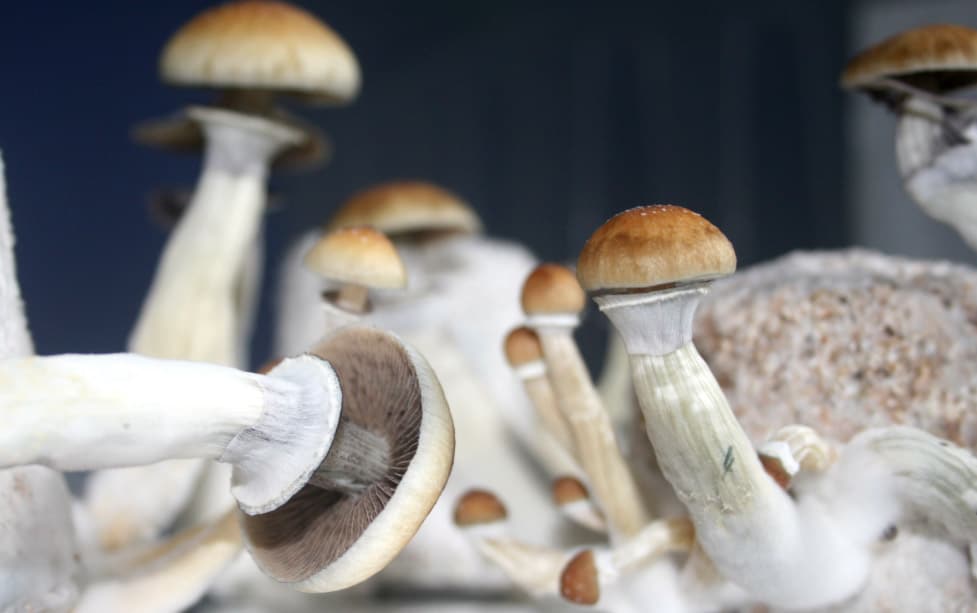When a group of adults with depression were given psilocybin, they saw much bigger improvements in their mental health compared to those given placebo. This research finding comes at a time when cities, states and even the federal government are considering changing the legal status of the drug.
The new study was published in the Journal of the American Medical Association (JAMA) on August 31, led by Charles Raison, MD, and sponsored by the Usona Institute. The researchers conducted a randomized, placebo-controlled trial with 104 adults over six weeks. Alongside psychological support, some participants were given a 25 milligram dose of psilocybin, which was “well tolerated” with “no serious treatment-emergent adverse events.”
Participants were all diagnosed with major depressive disorder. Aged 21-65, they averaged around 40. There were equal numbers of men and women, but nearly 90 percent were white. People with histories of psychosis, mania or suicidal ideation, as well as those with substance use disorder, were excluded.
Half the participants were given psilocybin during the study, while the other half received a placebo (roughly one-fifth of patients who received psilocybin had previously used a psychedelic drug in their lifetime, though this was not a factor in their selection).
Psilocybin was associated with greater improvents on depression-symptoms scores compared to placebo.
Each patient sat with two counselors, at least one of whom was a licensed psychologist or physician, for six-to-eight hours of “preparation” before dosing. This typically involves discussing health history and what to expect after taking the drug. On the day of dosing, patients sat in a comfortable room for seven-to-10 hours with the same counselors; they were encouraged to wear eyeshades and listen to music with headphones. Afterwards, the patients met with their counselors once more for an “integration” session, to discuss what happened and how they felt about it.
Using a scale, the researchers measured changes in participants’ depression symptoms at different points over 43 days. They also measured severity of depression based on how badly it affected work, social or home life.
Psilocybin was associated with substantially greater improvements on depression-symptoms scores compared to placebo: Those given the drug averaged a 19.1 point drop, versus 6.8 for the placebo group. The difference was apparent when measured 15 and 29 days after dosing, and at the 43-day followup. Psilocybin recipients also had improved “life outcome” scores, showed more sustained depressive symptom response than the placebo group, and had a slightly higher rate of depression remission.
A higher proportion of the psilocybin patients experienced an adverse effect, however. While none of these were deemed very severe and only a few people were affected, these included migraine, headache, panic attack and paranoia. No suicidal or self-harming behavior occurred during the trial.
“The results show promise for all people struggling with this condition. It could provide hope for those who have not responded to other treatments.”
“The data suggest a benefit which is truly encouraging,” Raison, who is the director of clinical and translational research at the Usona Institute, said in a statement. “As the largest and most rigorous study conducted across a wide spectrum of individuals with major depressive disorder, the results show promise for all people struggling with this condition. It could provide hope for those who have not responded to other treatments, and it could also present a viable option for individuals seeking to avoid long-term treatment with standard antidepressants.”
The researchers declined to be interviewed by Filter, but the study has some apparent limitations. Perhaps the biggest is that it’s difficult to have a real placebo control in a psychedelic study. If you’re in the placebo group, it might well become obvious that you didn’t take the drug when you’re sitting in a room for six hours and not tripping.
The trial’s time-frame also doesn’t demonstrate if any benefits from psilocybin treatment are long-lasting—whether we’d still see an improvement in depression symptoms six months or a year later. And it’s worth noting that the drug was not the only treatment given—patients also received psychological counseling, although this was the case for both the psilocybin and the placebo group. The participants were also given synthetic psilocybin, and didn’t eat mushrooms as most users would.
Finally, a major issue was that participants were predominantly white and higher-income, so the trial tells us little about how psilocybin would impact people who are facing potentially much more challenging life circumstances.
The next step would be Phase 3, after which it could apply to the FDA for federal approval of psilocybin as a medicine.
Nonetheless, the results are compelling and add to an existing body of evidence suggesting psilocybin’s efficacy for mental health conditions, as well as its relative safety.
The Usona Institute is continuing with its psilocybin research. This study concludes Phase 2 of its trial; the next step would be Phase 3, after which it could apply to the FDA for federal approval of psilocybin as a medicine. All this could take many more years.
Meanwhile, another research institution, Compass, is investigating psilocybin for treatment-resistant depression, and is further along in that process.
In the short term, study results like this could well fuel political efforts to change laws around psilocybin—like the voter-approved initiatives in Oregon and Colorado that have legalized psilocybin for limited and supervised adult use, or the dozens of cities, like Denver, Oakland, San Francisco and Seattle, that have decriminalized possession and use.
Even at the federal level—where drug policy reform moves slowest—the potential of psychedelics to assist with mental health has resulted in congressional efforts to support military service members who seek psychedelic treatment and to make it easier to research these drugs. Even the famously anti-drug President Biden has considered creating a federal psychedelics task force and is reportedly “open minded” on the issue.
Photograph by Walter Henrique Pedron Moschen via Wikimedia Commons/Creative Commons 3.0




